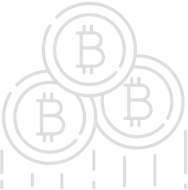Oath is a security layer that provides a dispute resolution and governance solution for the blockchain ecosystem. “Code is Law,” but we believe that Common Consensus is the real law. While code may resolve certain issues according to its pre-defined parameters, Common Consensus can address a much broader and flexible range of potential disputes that are not or cannot be pre-defined. Our vision is to create a robust, fair, and decentralized standard dispute resolution protocol that can be used by both public chains and dApps to facilitate community decision making.
STO/ICO Status
Claim this listing and publish updates.
Basics
| Platform | Ethereum |
|---|---|
| Type | ERC20 |
| Accepting | Others |
| Circulating Supply | 30% |
| KYC | N/A |
| Restricted Areas | N/A |
| Homepage | Website URL |
| White Paper | View/Download |
About
OATH is a blockchain-based alternative dispute resolution protocol. It is an infrastructure layer between chains and dApps. By using a decentralized juror community with a complete new consensus mechanism, Proof of Common sense, OATH provides a robust, fair, transparent, and extensible dispute resolution protocol.
OATH serves as a blockchain governance system that provides an effective warranty for smart contracts. If one side is dissatisfied with an outcome, resulting in a dispute, there will be a decentralized third party with no conflict of interest to resolve the dispute. The availability of a dispute resolution mechanism improves the reliability of smart contracts and provides a dependable protection mechanism for blockchain users.
OATH acts as an insurance protocol for dApp users, protecting them from undesirable counterparty behavior. Once the OATH protocol is initiated, OATH jury community will vote on the verdict to resolve the dispute. OATH protocol will greatly improve users’ credibility and ensure that all contracts are guaranteed by an objective system and that, in case of a dispute, the parties have an unbiased, objective jury handling it.
OATH can also provide verification of real-world information, which is presently a big issue for blockchain. As a standard protocol, any dApp that utilizes OATH may request any kind of real-world information from our jury community, our jurors will provide information, and the rest of the jury community will vote to verify the information’s authenticity and accuracy.
